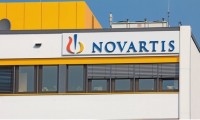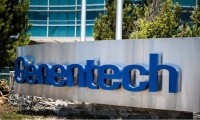-
Novartis Shareholders Approve Sandoz Spin-Off as Product Plans Increase
- Source: drugdu
- 128
- September 19, 2023
-
NICE recommends use of Vydura for acute migraines on the NHS
- Source: drugdu
- 110
- September 16, 2023
-
Alnylam Wins Adcomm’s Support for Heart Disease Drug Despite FDA Concerns
- Source: drugdu
- 114
- September 15, 2023
-
FDA Questions Efficacy of Alnylam’s Drug in ATTR-CM Ahead of Adcomm Meeting
- Source: drugdu
- 131
- September 14, 2023
-
AstraZeneca Signs AI-Powered Drug Discovery Pact with Verge
- Source: drugdu
- 195
- September 12, 2023
-
GSK invests over $270m in vaccine manufacturing ahead of RSV vaccine launch
- Source: drugdu
- 203
- September 8, 2023
-
Astellas withdraws IRA lawsuit after avoiding CMS’ price negotiations list
- Source: drugdu
- 189
- September 8, 2023
-
Following in Tecentriq’s footsteps, Alecensa gives Roche another win in early-stage lung cancer
- Source: drugdu
- 117
- September 6, 2023
-
BioNTech, DualityBio Move ADC into Phase III for HER2-Low Breast Cancer
- Source: drugdu
- 110
- September 5, 2023
-
Bavarian Nordic Drops COVID Booster After Poor Phase III Results
- Source: drugdu
- 104
- September 5, 2023
your submission has already been received.
OK
Subscribe
Please enter a valid Email address!
Submit
The most relevant industry news & insight will be sent to you every two weeks.













